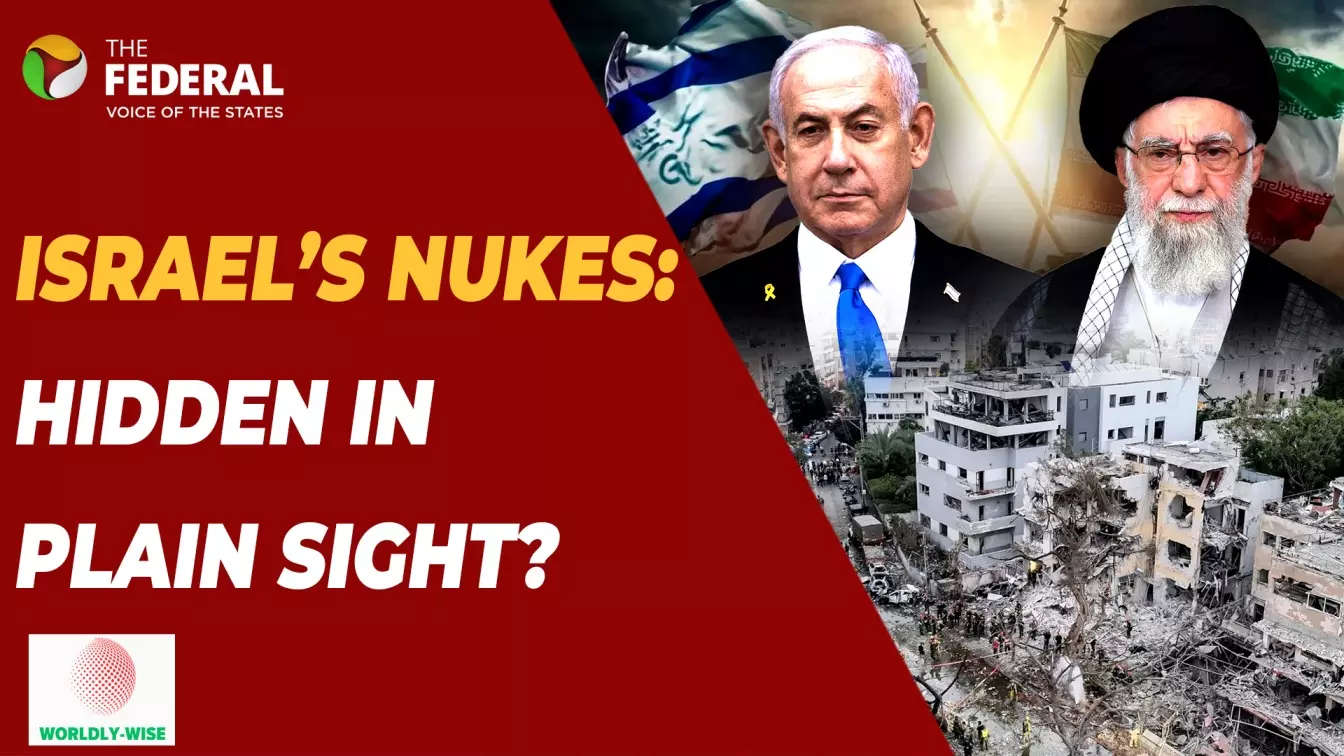
Iran Israel conflict
Israel’s secret nuclear power: The truth behind its ambiguity
Why Israel never admits it has nukes, even as it attacks Iran’s nuclear sites. Can ambiguity shield accountability?

Israel’s nuclear capabilities have long been an open secret — but without official confirmation, the country has remained free from global scrutiny. In this episode of Worldly Wise, we unpack Israel’s long-standing policy of nuclear ambiguity, the geopolitical implications of its undeclared arsenal, and the regional tensions that continue to rise.
What is nuclear ambiguity?
Ambiguity means neither a clear yes nor no. That’s how Israel approaches its nuclear status — never confirming, never denying. It’s a deliberate posture that keeps critics and adversaries guessing. The country has never signed the Nuclear Non-Proliferation Treaty and has resisted international oversight.
A nuclear power that won’t admit it
Though Israel bombed Iran’s nuclear sites last week, it has itself possessed nuclear weapons since at least the 1960s. No government has acknowledged this, but independent estimates by SIPRI suggest Israel holds around 90 nuclear warheads. These can be delivered by aircraft, missiles, and submarines.
Western backing enables secrecy
The US and its allies turn a blind eye to Israel’s nuclear program. When Qatar recently demanded IAEA oversight of Israeli facilities, the move was ignored. Historical guilt, strategic alliances, and Cold War-era politics have allowed Israel to lead a “charmed existence,” avoiding the accountability faced by Iran and others.
The hypocrisy argument
Israel’s critics in the Middle East point out the double standard. If Israel has nuclear weapons but won’t let others even attempt to develop them, how is that fair? This has caused deep resentment among nations like Iran, especially as Israel justifies its own nuclear arsenal citing hostile neighbors.
Also Read: Trump, Netanyahu acting in tandem to subdue Iran?
Dimona and the birth of Israel’s programme
Israel’s nuclear journey began in the 1950s with help from France, centered in Dimona in the Negev Desert. The US discovered the project in the ’60s but chose to stay quiet. Since then, Israel’s standard response has been, “We will not be the first to introduce nuclear weapons in the region.”
Exposing the truth
The first solid evidence came in 1986 when whistleblower Mordechai Vanunu leaked photos and documents to the Sunday Times. He was later abducted by Mossad, jailed for 18 years, and barred from speaking to the press even after release.
A doctrine of denial and deterrence
Israel’s unofficial doctrines — the Begin Doctrine and the Samson Option — reflect its military posture. From bombing Iraq’s Osirak reactor in 1981 to Syria’s Al-Kibar facility in 2007, Israel has ensured no rival in the region gains nuclear capability.
Cyber warfare and assassinations
When Iran’s nuclear facilities proved too well-protected, Israel shifted strategy. It used Stuxnet malware with the US in 2010 to damage centrifuges in Natanz. In 2020, scientist Mohsen Fakhrizadeh was assassinated. More recently, sabotage and bombings inside Iran continue, as Israel tries to stay steps ahead.
Israel’s silence on its nuclear status doesn’t diminish its impact. The country’s unique posture, enabled by Western support and aggressive counter-proliferation actions, shapes the balance of power in the Middle East. Yet it also raises urgent questions of fairness, accountability, and the future of nuclear diplomacy.
The content above has been generated using a fine-tuned AI model. To ensure accuracy, quality, and editorial integrity, we employ a Human-In-The-Loop (HITL) process. While AI assists in creating the initial draft, our experienced editorial team carefully reviews, edits, and refines the content before publication. At The Federal, we combine the efficiency of AI with the expertise of human editors to deliver reliable and insightful journalism.

